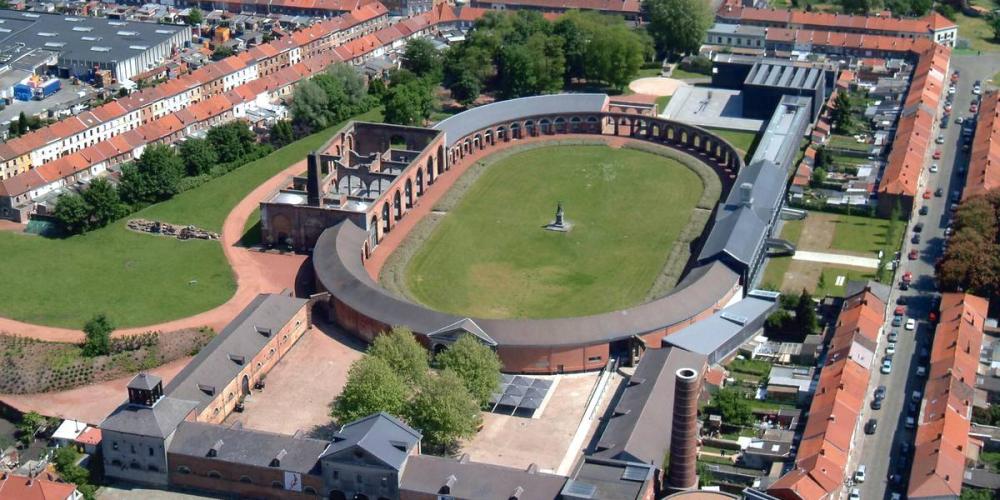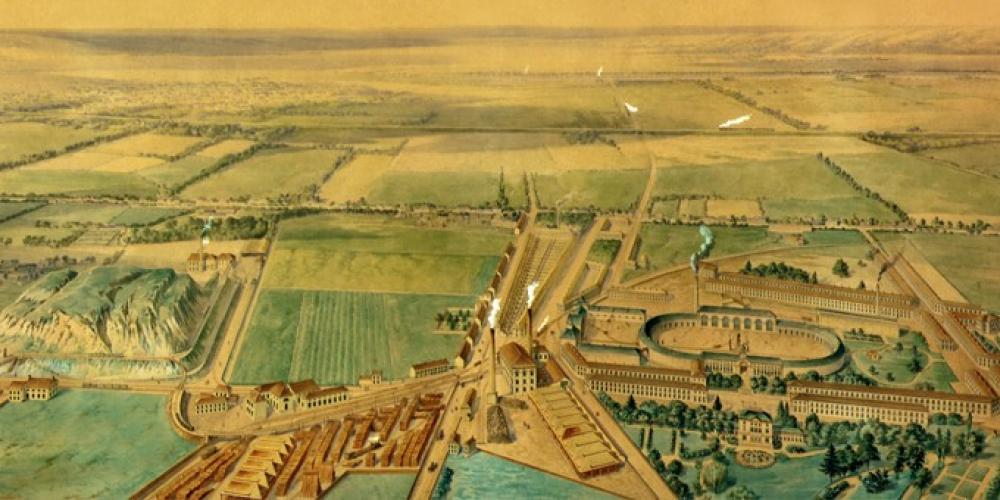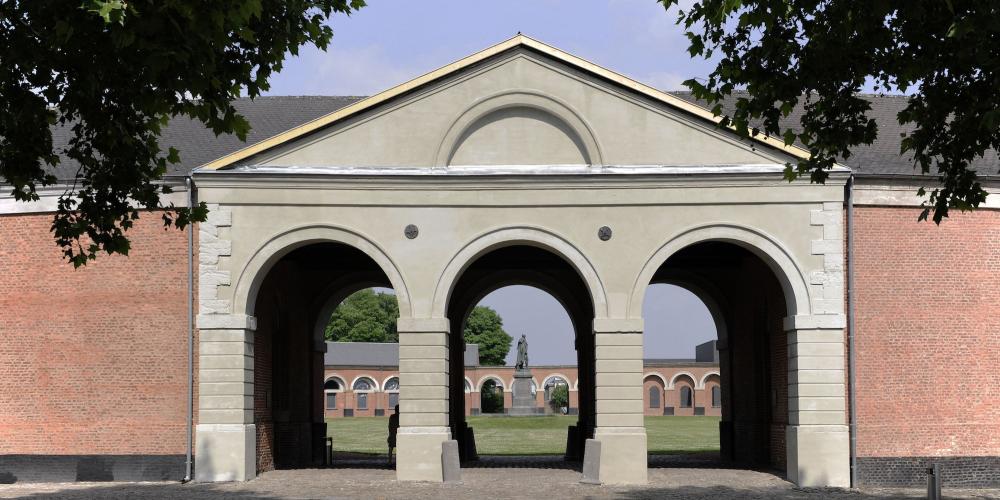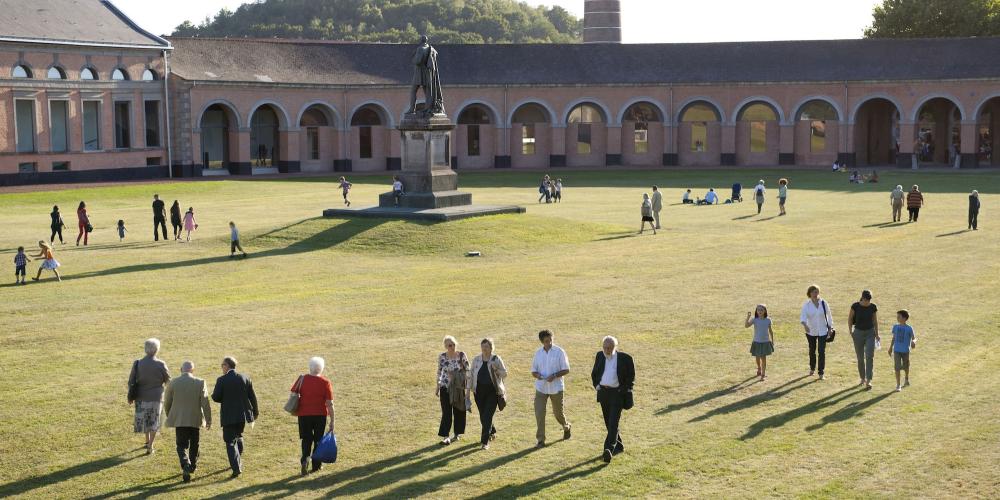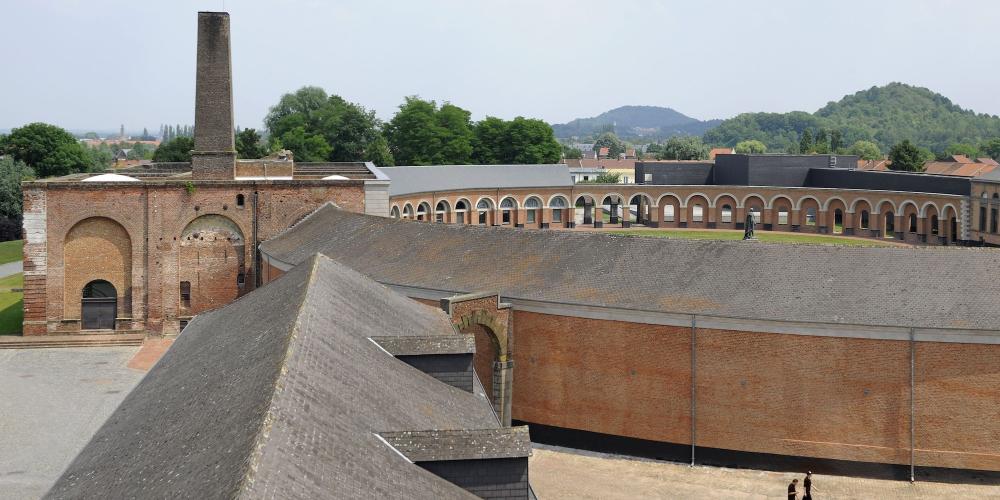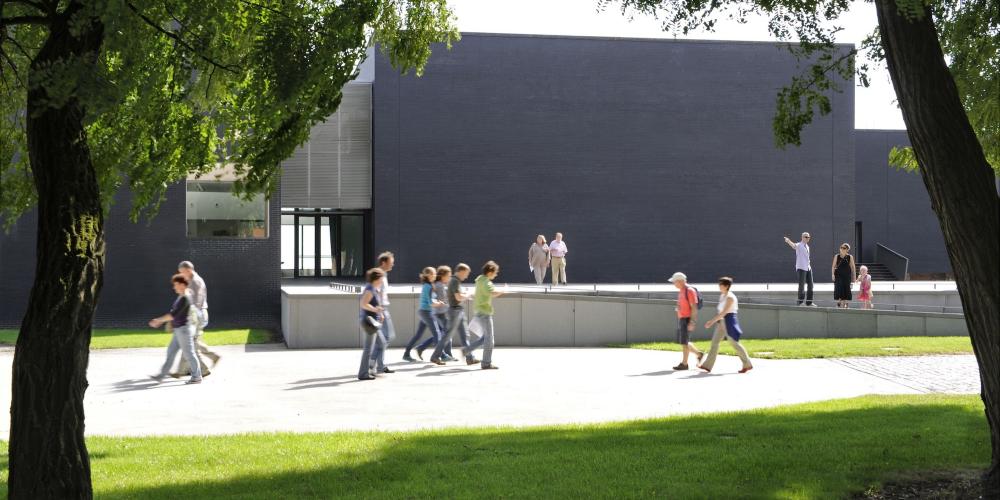Grand Hornu

This monumental complex was built in the 19th century by Henri Degorge, a French entrepreneur who was tempted by the coal mining venture. The site began operating at the height of the industrial revolution, in a region which at the time was the second most important in industrial terms in the world! Grand-Hornu Colliery soon became one of the largest mining companies in the newly independent Belgium, producing and exporting to an area extending from the Nord region of France to south of the Paris Region. The colliery became a symbol of the coal industry and an incredible technological, social and human laboratory.
New extraction technologies and new steam-powered machines were invented at Hornu, and the country's first private railway was built there, to support the company's economic development.
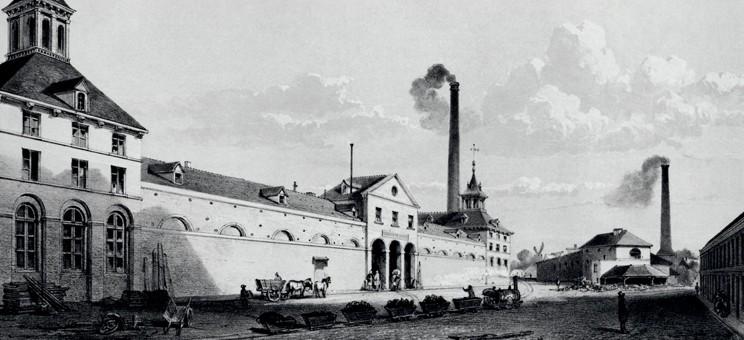
A terraced housing district with 450 houses was also built, providing Grand-Hornu colliery workers with more comfortable living conditions. These houses were spacious and solidly built, equipped with hot water and had gardens. A school was founded, along with a dancehall, shops and a chemist's… Such facilities could not be boasted at any other workers' district in the surrounding area.
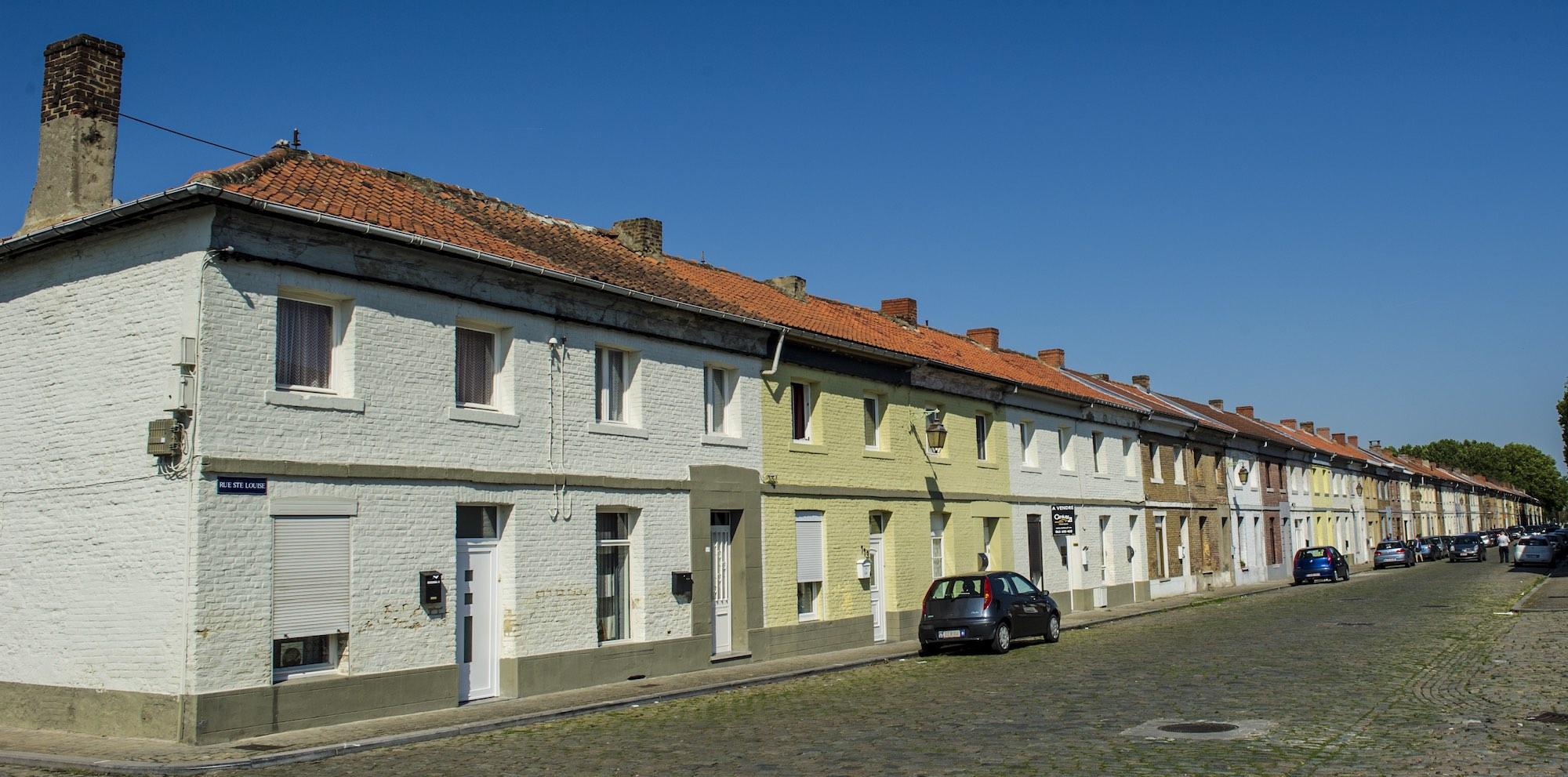
The post-war period plunged Grand-Hornu into a long hibernation, when the Treaty establishing the European Coal and Steel Community was signed (ECSC) in 1954, in order to rationalise production. Industrial operations ceased and the site was abandoned. When in the late 1960s a handful of heritage enthusiasts campaigned to save it from impending destruction, the site was no more than a shadow of its former self, having been made derelict by the elements and vandalism.
In 1971, the architect Henri Guchez purchased the site and definitively secured its salvation. He began an initial renovation phase and established his firm there.
The Province de Hainaut began the second phase of renovation works in 1989. In the early 1990s, the French Community's decision to establish its future Museum of Contemporary Arts at Hornu ensured the completion of Grand-Hornu's renovation. Developing the MAC's guaranteed that the remaining part of the site would be refurbished. Since September 2002 and the opening of the Museum of Contemporary Arts at Grand-Hornu, the site is once more open to visitors in all its splendour.
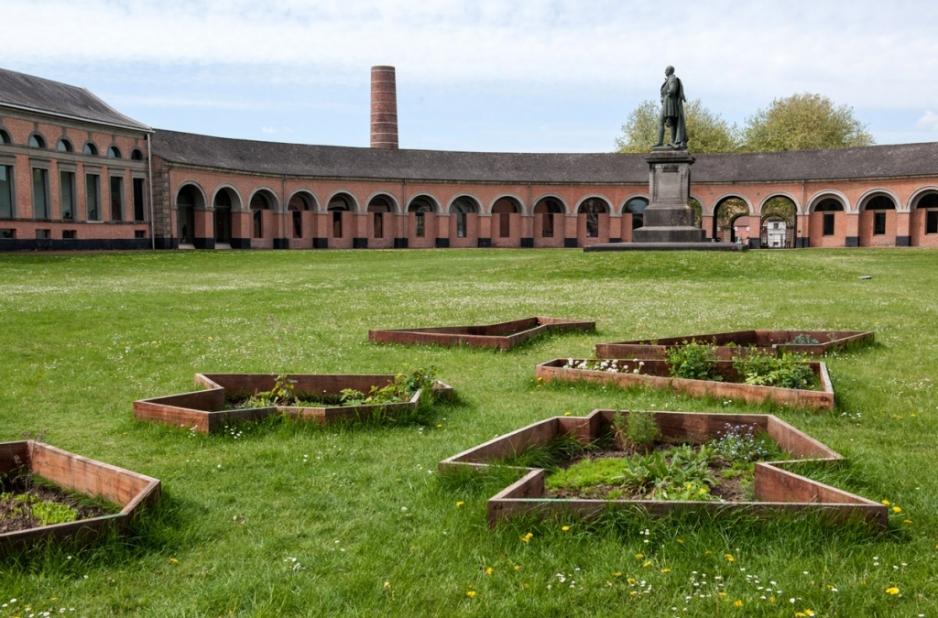
How to Get There
Grand-Hornu is located at Rue Sainte-Louise, 82 7301 Hornu. By car, exit the E19 Brussels-Paris motorway at junction 25 'Saint-Ghislain-Tertre-Hornu' and follow signs to Saint-Ghislain, Hornu, then follow the signposts to the site entrance. The closest train stations are Saint-Ghislain and Mons. From Mons station, you can reach Grand-Hornu by the TEC buses (lines 7 and 9 - Grand-Hornu stop) or by taxi. From Saint-Ghislain station, you should take a taxi to the site.
When to Visit
Grand-Hornu is open Tuesday to Sunday, 10:00 - 18:00, with guided tours for individuals Tuesday to Saturday at 11:00 for the historic site, 14:00 for the contemporary art exhibition (except Saturday), and 15:30 for the design exhibition. On Sunday, tour the contemporary art exhibition at 11:00 and 14:00, at 15:00 for the historic site, and at 16:30 pm for the design exhibition. The Grand-Hornu is closed on 24, 25, 31st December and 1st January.
How to Visit
Grand-Hornu offers guided tours of the historic site and art and design exhibitions, which is included in the price of a ticket. There is also an audio guide for the historic site in English, French, Dutch, German, Italian, and Spanish for 2 €.
Grand Hornu
Open Tuesday to Sunday, 10:00 to 18:00.
During assembly and disassembly of exhibitions, some rooms can be inaccessible.
Free guided tours for individuals (subject to availability of the guides):
Tuesday to Saturday - 11:00 for the historic site, at 14:00 for the contemporary art exhibition (except Saturday), and 15:30 for the design exhibition,
Sunday - 11:00 and 14:00 for the contemporary art exhibition, 15:00 for the historic site, at 4.30 pm for the design exhibition.
Closed on 24, 25, 31st December and 1st January.
Pets are not allowed.
Individual ticket: € 8
Reduced rate (seniors and others): € 5
School groups and children: 2 € / pers.
Free entry for children under 6 years old
Audio guide, tour of the historic site (FR / NL / DE / UK / IT / SP): 2 €
The entrance ticket entitles you to visit current exhibitions at CID, the MAC's and an access to the Grand-Hornu site.
Free entry on the first Sunday of the month and the first Wednesday of the month for schools.
Groups:
Guided tours in French, Dutch, German and English
You can have a guided tour of the exhibitions and the historical site of the Grand-Hornu.
According to the type of group, the amount of time you have available and your interests, our bookings service is available to help you prepare your visit to Grand-Hornu.
